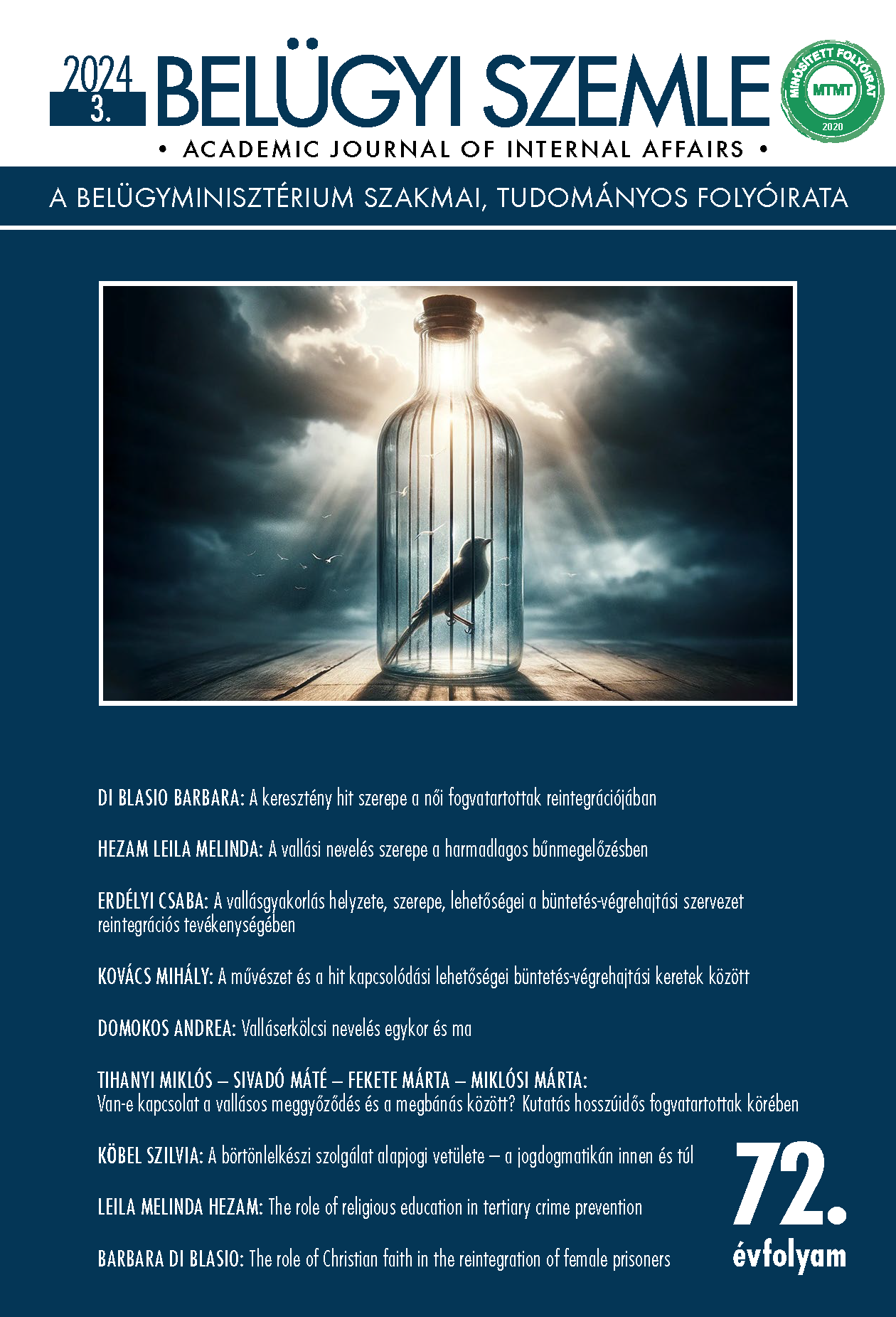Absztrakt
Aim: Since man is a being in search of meaning, religion can be defined as a way of ‘sacral search for meaning’ related to certain events in life. While sacrality is central to some people’s systems of meaning-seeking, it is marginal or not sacral at all in the systems of others. It is clear that religion can be an important guide for the individual, as it can influence one’s understanding of the world and make individual challenges and social conflicts understandable and bearable. As faith, in its mature developmental form, underpins the way religious people live their lives, the sacral search for meaning can also play a crucial role in one’s coping processes. However, the extent to which religion is involved in coping with a particular life event depends to a large extent on the extent to which it is part of an individual’s orientation system. The protective effect of religion in coping is a thesis already recognised by scientific psychology and therefore has an undisputed place in the scientific professional discourse on reintegration. The aim of this paper is to provide scientific evidence for the place and legitimacy of religion in reintegration.
Methodology: The research is based on two sub-samples, one religious and one control group. Inclusion in the religious group was based on self-reporting, regardless of whether the subjects of the study had a religious experience in the life period prior to serving their sentence. The data were analysed using SPSS statistical software package.
Findings: Juveniles in juvenile detention who self-reported being religious showed a different attitude towards conflict management compared to the control group. This suggests that a framework of cooperation between civil churches, the academic community and decision-makers in custodial institutions could be used to develop a diversified, faith-based reintegration model to increase the effectiveness of efforts to reduce crime.
Value: The publication is a gap in the empirical study of religion-based reintegration. The topic is a practical one, but its full exploration requires further research.

This work is licensed under a Creative Commons Attribution-NonCommercial-NoDerivatives 4.0 International License.
Copyright (c) 2024 Belügyi Szemle

